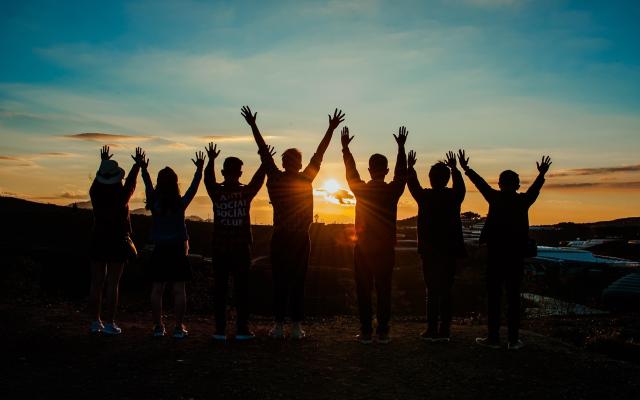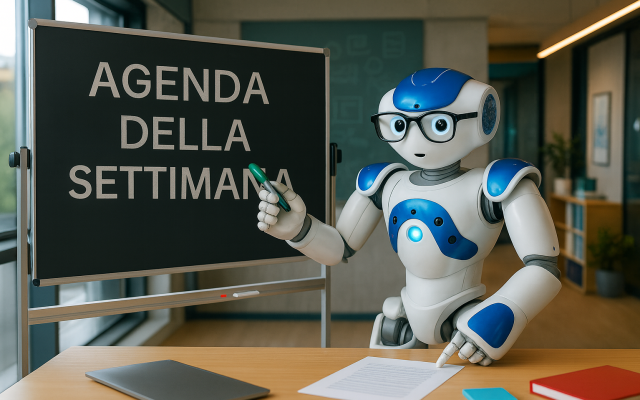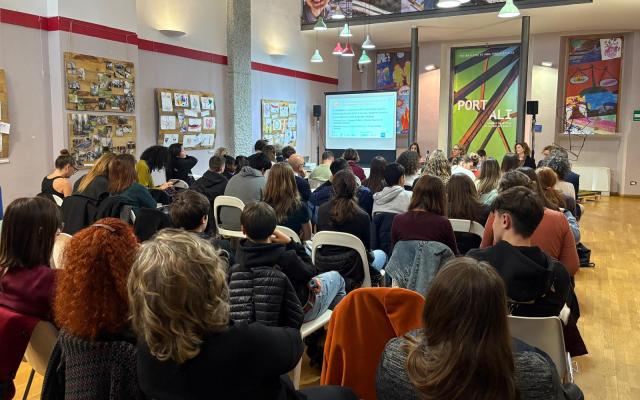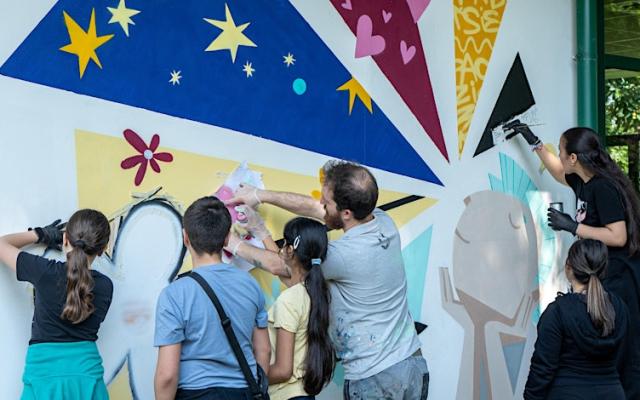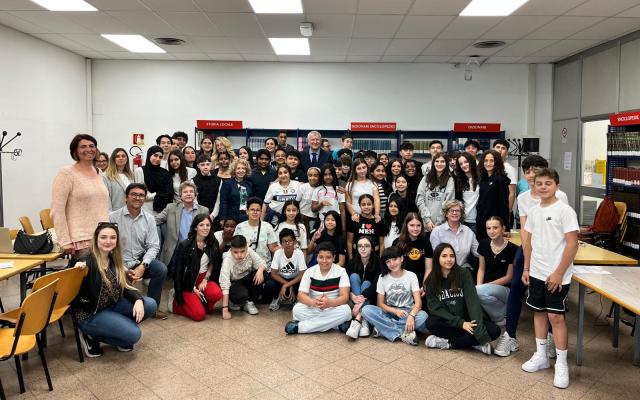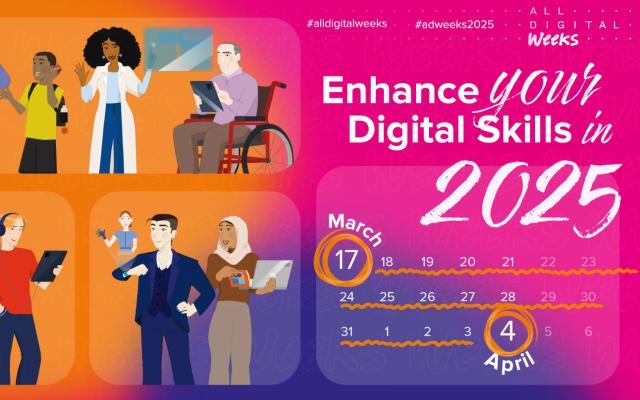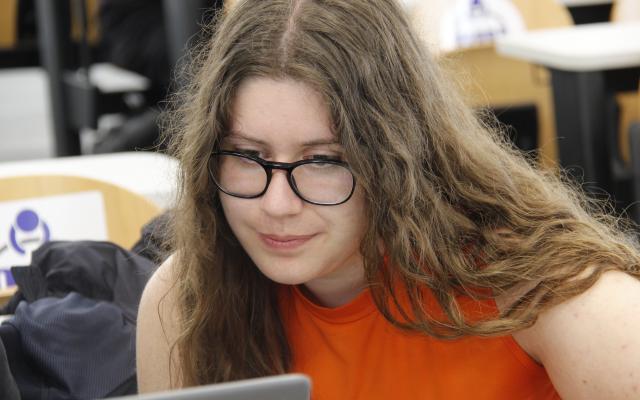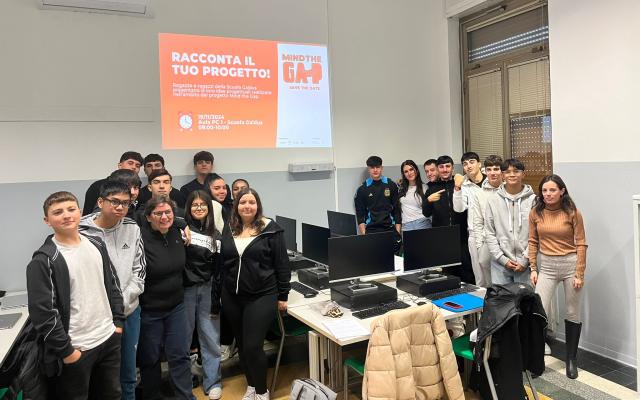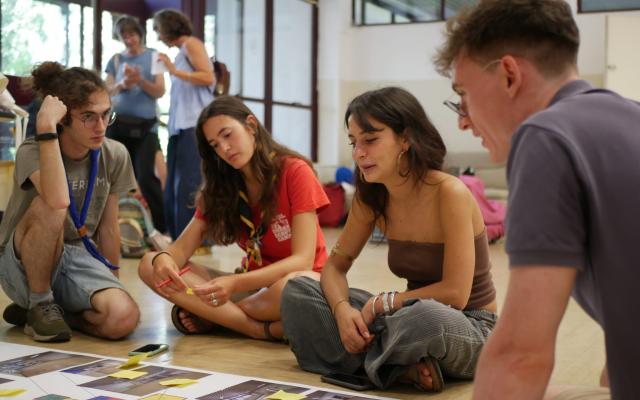A three-year local project in Milan's Municipio 4 district
Fondazione Mondo Digitale, ActionAid Italia (lead partner), the Municipality of Milan and Junior Achievement Italia have formed an alliance for a three-year (2023-2025) local project aimed at the Municipality of Milan's 4th District to reduce early school leaving and educational poverty among 11 to 17-year-olds.
OBJECTIVES
- Strengthen the role of schools and the educational community in the fight against educational poverty
- Spread a creative and conscious use of digital technologies
- Encourage the acquisition of civic and social skills, increasing the participation of young people and the educating community
- Create a space in which the educating community can develop innovative and sustainable responses to educational poverty, building more inclusive and democratic models of school and community governance.
ACTIONS
The project aims to create and model a public-private service to prevent and combat educational poverty that actively involves the educational community and, in particular, at-risk children (11-17 years old).
The planned actions go in two directions: on the one hand, to increase the technical and transversal skills of middle and high school students through: 1) innovative STEAM (science, technology, engineering, arts and mathematics) workshops (coding, robotics, digital fabrication, videomaking, etc.); 2) workshops for the conception and design of businesses or services; 3) participatory street art workshops; on the other hand, we work with the extended educational community to co-design and experiment with an integrated service for the transition between school cycles and into the world of work. Finally, part of the initiative is the implementation of a shared Territorial Educational Pact (PET), which promotes the strengthening of the educating community and organises the experiences and resources of the territory.
FOR SECONDARY SCHOOLS
The FMD is responsible, together with Junior Achievement, for Action 4 ‘Training and motivational courses for lower secondary schools’; in particular, the FMD is in charge of the workshop activities of the course ‘WHAT SHAPE DOES AN IDEA HAVE’, an original learning experience to stimulate participants to combine creativity and technology with the conscious and careful use of different tools. The students are involved in creative workshops on digital skills where the ideas that emerged in the previous phase of the course are transformed into prototypes, products and communication materials. The types of workshops, which use the environments, equipment and methodologies of the Innovation Gym, are:
- CODINGLAB: computational thinking, logic and basic concepts of programming mobile applications and web pages
- ROBOTICLAB: from building hardware to programming software
- INTERNET OF THINGS AND ARTIFICIAL INTELLIGENCE: basic concepts of computer science and electronics and application of computational thinking to the real world
- MAKING AND DIGITAL MANUFACTURING: from prototyping to numerically controlled machines, up to the design of a small object
- VIDEO MAKING AND SOUND DESIGN: basic storytelling, animation and sound design techniques through to the creation of a multimedia product
- GAMING: the basics for creating a 2D and 3D video game.
FOR SECONDARY SCHOOLS
FMD also organises experiential training activities for students in secondary schools with Action 5, ‘Digital workshops for participation and inclusion’: a two-year programme that combines team building, learning by doing, peer to peer education with the Virtual Service Learning approach. The programme combines the use of technology with ‘service’ design in response to local needs and stimuli.
The planned activities are:
- ‘START APP’ - A basic course on the key skills of digital citizenship, covering the basics of digital communication and STEM environments
- ‘START WEB’ - A programme to develop online presence with two very different transversal influences, one service-based (service learning) and the other technological (e.g. website development with chatbot integration, creation of a blog or an online campaign, etc.).
FOR THE BOYS AND GIRLS OF THE NEIGHBOURHOOD
FMD, together with ActionAid and other local organisations, is responsible for the animation activities at CAM Mondolfo, a space in the Municipality of Milan aimed at bringing people together, social participation and the development of recreational, cultural, educational and sporting activities accessible free of charge to all age groups. FMD's involvement in CAM Mondolfo began last year as part of the OpenSPACE project. With Mind the Gap the experimentation continues, involving local young people in an original programme dedicated to videomaking and video editing.
FOR THE EDUCATING COMMUNITY
With the course ‘An inclusive school is a quality school’, the FMD also offers modular training aimed at teachers and educators to enable them to acquire skills useful for supporting co-planning with children, innovating the school and curricular teaching through new technologies, with particular attention to blended learning (online/in presence).
The course has two main components:
- a calendar of ‘community webinars’ - training sessions on tools and methodologies for innovative teaching and the use of new technologies for teaching and learning;
- tailor-made training - mini-training courses in person (but also online) dedicated and tailored to the needs of a single school. From training in the use of equipment and devices present in the school, to their use in teaching, to the management of digital environments and the tools and methodologies of the Innovation Gym.
There are four thematic areas:
- New technologies for teaching: digital applications and solutions to transform teaching
- Digital citizenship and civic education: getting informed and choosing correct communication and behavioural styles online
- Innovation teams: innovation in the world of education. Complexity and new educational proposals, education for life, dimensions and practice of innovation
- Coding for everyone: inclusive teaching solutions that take into account the specific needs of each student, in particular with regard to SEN and SLD.
NUMBERS
The project aims to involve the following direct recipients:
- 600 young people (11-17 years old)
- 100 parents
- 100 teachers
- 30 people working in local authority and private social and educational services involved in the planning and testing of the service.
The project aims to reach the following indirect recipients:
- 1600 young people living in the municipality 4
- around 1000 citizens.

